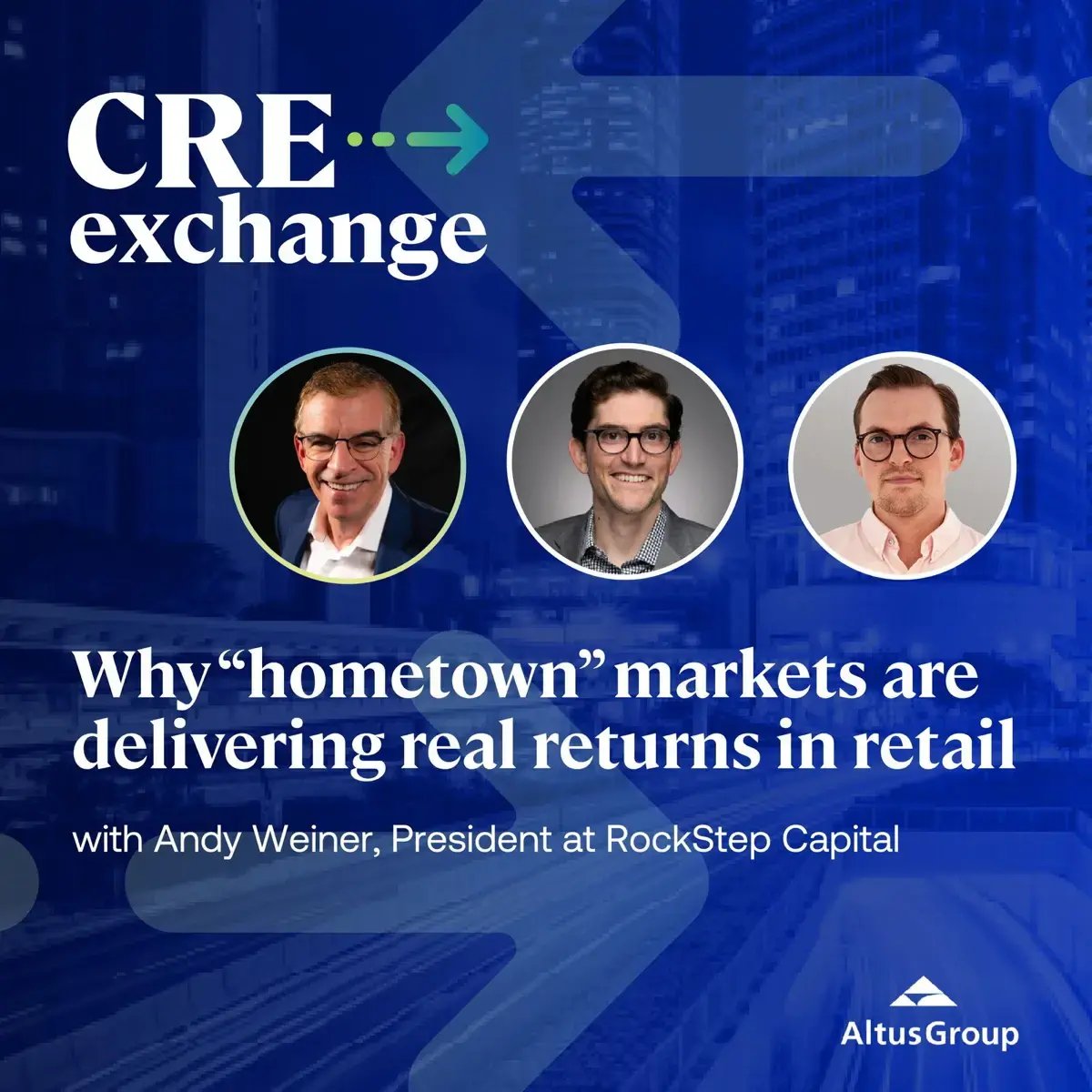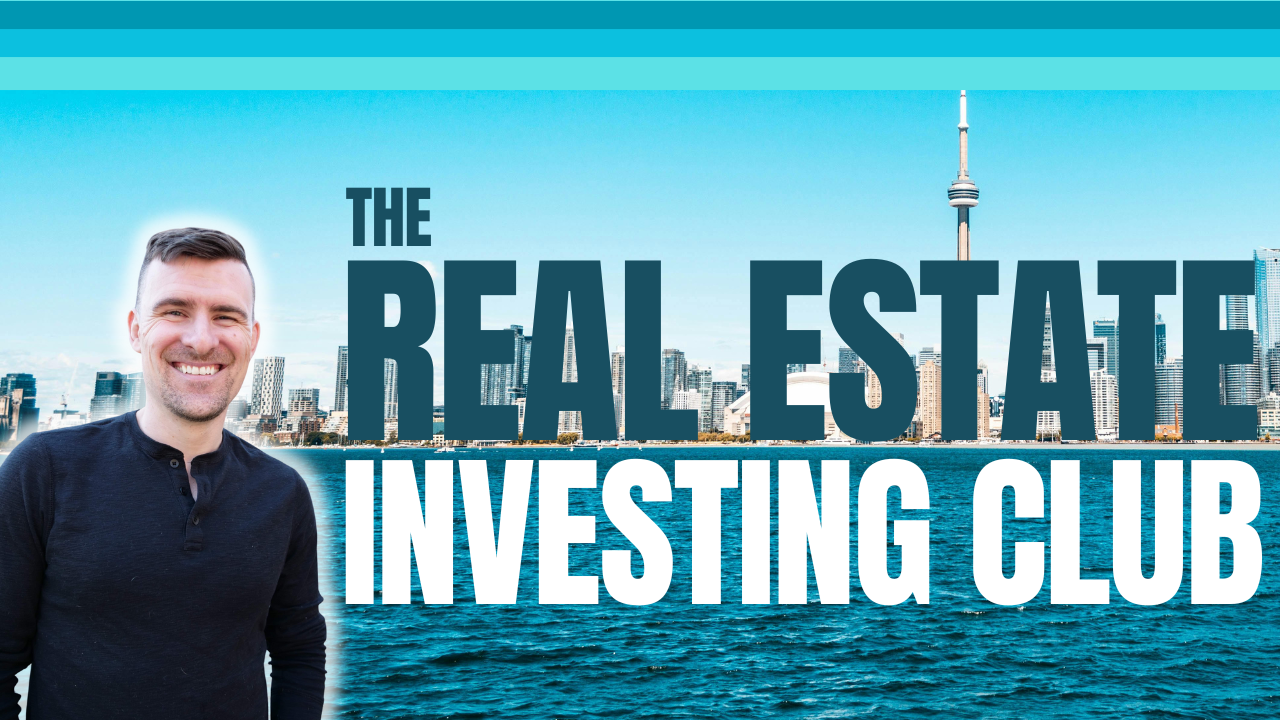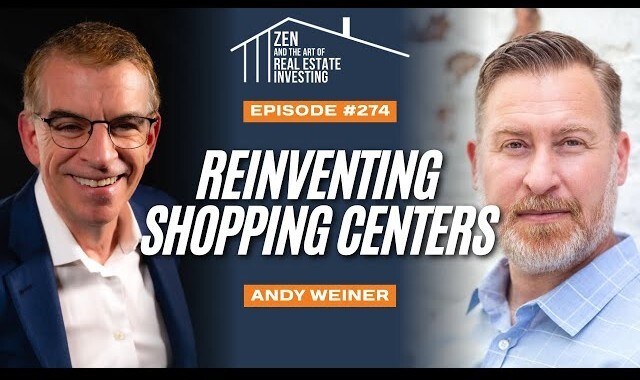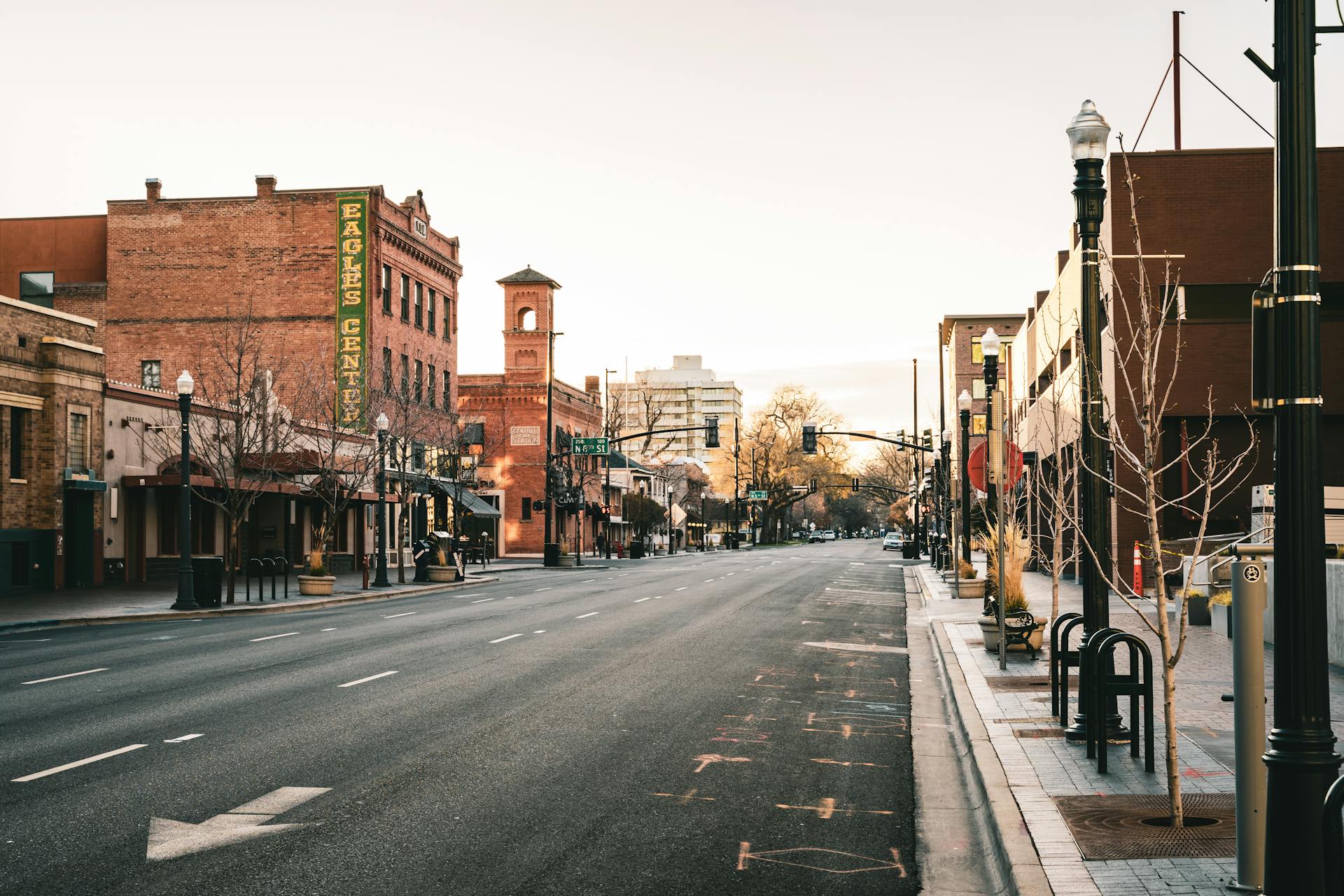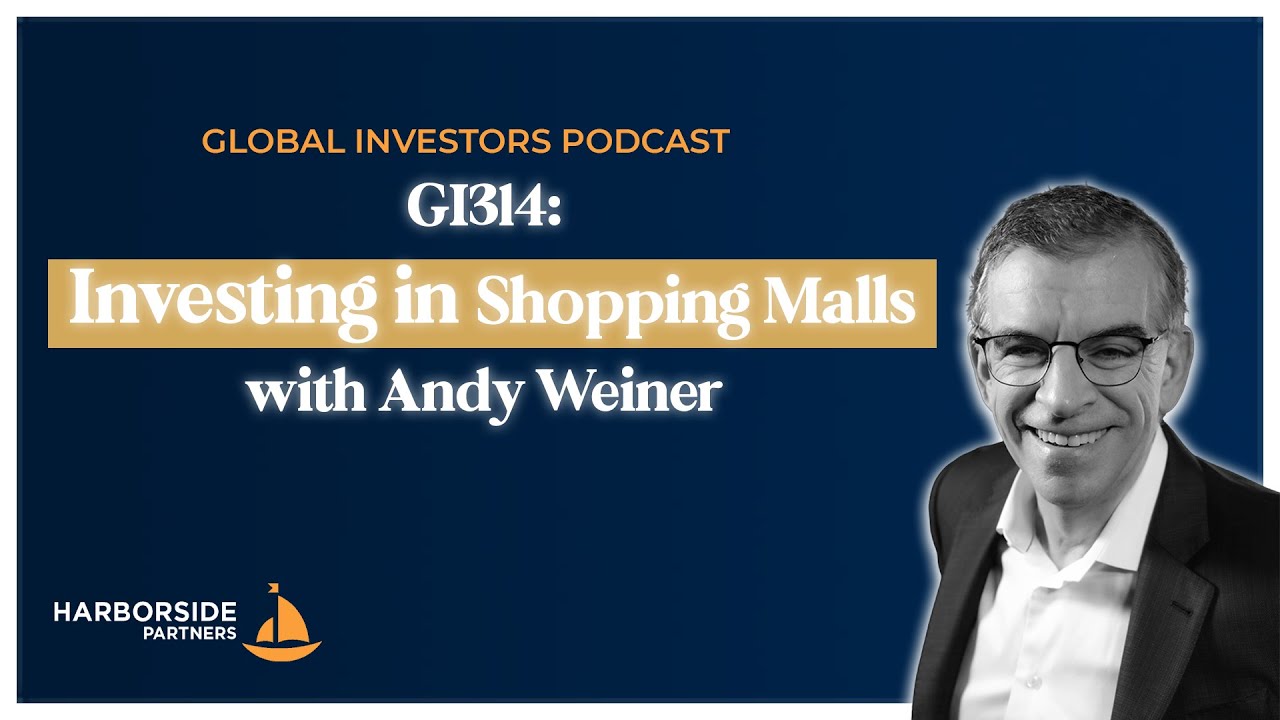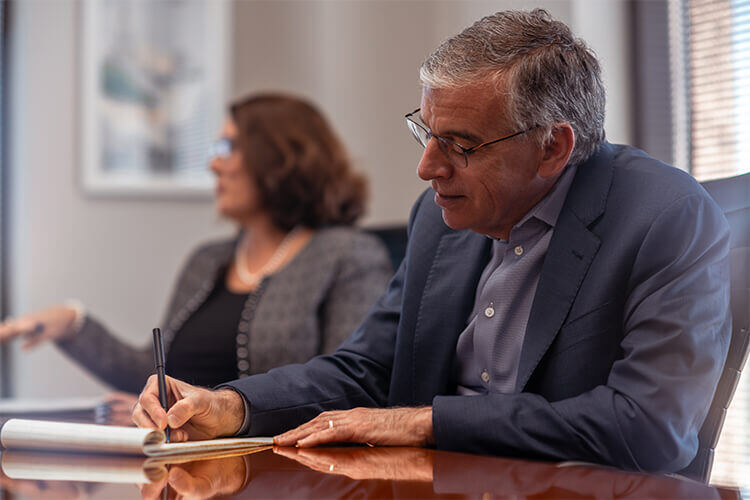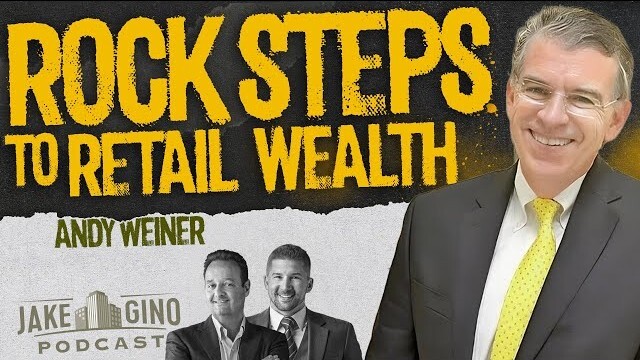No Cap: Why Distressed Malls Might Be The Best CRE Opportunity Today
July 16th, 2025
4 min read
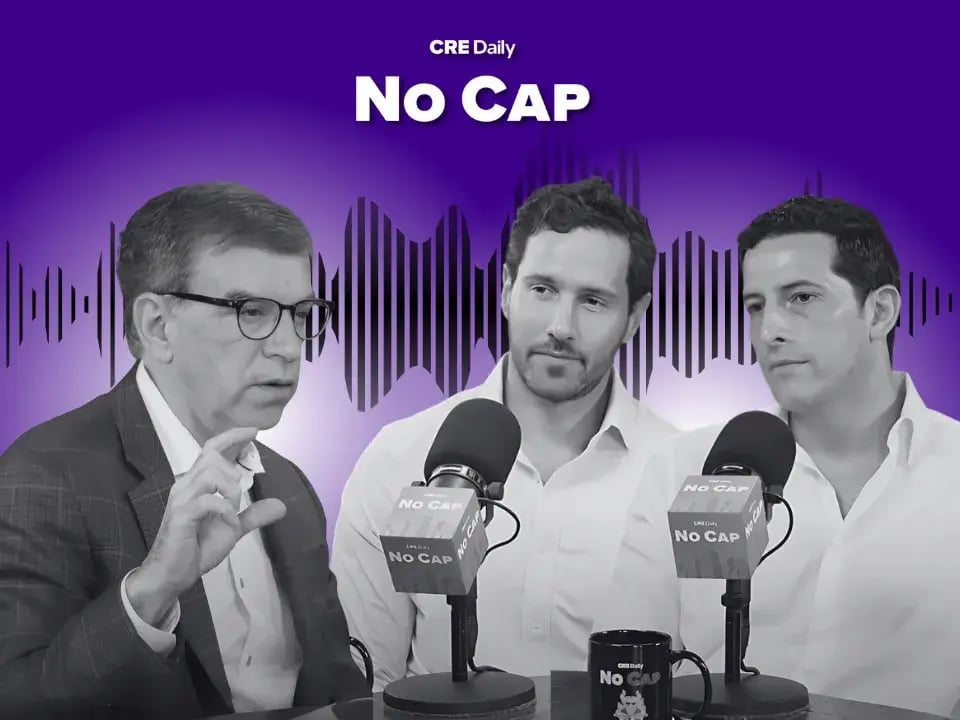
Note: This podcast episode is also available on platforms like Apple Podcasts and Spotify.
Recently, Andy Weiner was a featured guest on the No Cap podcast from CRE Daily. In his appearance, Andy shared his unconventional approach to retail real estate. Speaking with hosts Jack Stone and Alex Gornik, Weiner challenged prevailing assumptions about dying malls and made a powerful case for investing in overlooked markets across the country. His message was clear: while others focus on coastal cities and trendy asset classes, RockStep is thriving by betting on America’s underappreciated HomeTown communities.
A Contrarian View of Retail’s Future
Weiner did not shy away from addressing the skepticism surrounding mall investments. While mainstream headlines continue to warn of "dead malls" and struggling department stores, he sees opportunity where others see risk.
“Malls are the most interesting investment, I believe, in commercial real estate, certainly in the shopping center sector. There is lots and lots of insolvent debt, 50 billion, a big, big number. That’s all going to get repriced over the next three, four years at land value, at mid-teens cap rates.”
He then explained RockStep’s framework for acquiring and revitalizing these assets. Whether the approach involves holding for cash flow, restructuring existing uses, or executing a full redevelopment, the focus is always on creating value through discipline and creativity.
“There are three basic strategies for malls. One is it works great in its current format, boring cashflow plays. The second is arbitrage, where the periphery is worth more than the core. The third is shrink and do something else... bringing in alternative uses, retail, medical, even a hockey arena.”
Choosing Communities Over Major Metros
Rather than chasing growth in crowded cities, Weiner explained why RockStep intentionally operates in towns that many investors avoid. These "HomeTown" markets, places like Manhattan, Kansas, or Redding, California, are central to the company’s strategy.
“These are communities where the leadership is identifiable and effective. Hometowns are not New York, not Chicago, not LA, not Houston. We’re talking about places where you can identify the key players in business, government, and finance.”
The approach is not just about targeting smaller markets. It is about working with the people who shape them.
“Our model is to buy great assets in markets that have something essential to them that drives demography (K State University, military bases, tourism), and buy the property cheap, with lots of cash flow. Then we partner with local business leaders who help us reduce risk by guiding entitlements, incentives, taxes, city relationships.”
Working with Communities to Unlock Value
Throughout the discussion, Weiner emphasized the importance of aligning with local stakeholders. Community banks, civic leaders, and regional investors are at the heart of each transaction.
“In Manhattan, Kansas, our community bank lender is K State Bank. Our investors are on the board. It’s all tied to community.”
He provided several examples of how these partnerships helped unlock funding, resolve regulatory challenges, and accelerate leasing efforts.
“We were able to get from the city an annuity of $1.5 to $2 million per year, unbudgeted, from the city. And I didn’t have to get involved. Our investors went to the mayor and city council.”
RockStep also takes advantage of sales tax structures available to retail developers.
“Retail has an advantage... you can actually put a sales tax on your property. The customer pays 2 cents more, and you use that to fund upgrades.”
Managing Risk with Discipline
Despite the optimism in Weiner’s tone, he made clear that the company’s deals are built on rigorous financial modeling and downside protection.
“You always start with base case underwriting. Assume the worst. If Victoria’s Secret is paying $500,000 and might leave, underwrite it down to $200,000.”
Weiner explained how each project is evaluated in phases. Many deals have two closings, with the first to secure the asset and the second after the repositioning plan is fully structured and vetted.
“Sometimes it works without incentives, but most of the time, you need them.”
Revitalizing Communities Through Real Estate
For RockStep, commercial real estate is about more than yields. It is also about revitalizing towns and restoring important properties to productive use.
“Our mission is to make HomeTown America better. That really is our mission. These towns need help. We’re here to make a living, pay bonuses, sure, but you actually make a difference.”
Weiner explained that most struggling malls are not just economic liabilities; they are also social liabilities. They affect a city’s quality of life and sense of pride.
“To take a complex asset and not mess up, you need three things: business leaders with a stake, city support, and a community bank. If problems come up (and they always do), you need that triangle. You need people who want to solve the problem together.”
Leading with Values, Not Just Capital
In the final segment of the episode, Weiner offered a closer look at RockStep’s company culture. At the center of it is a framework known internally as “The RockSteps”—a set of 25 values and behavioral guidelines that every team member follows.
“Rock-step is a dance move... We use it as a metaphor, saying "we've got to Rock-step". It means pivot. Be nimble.”
Each week, the team reflects on one of these values during a Monday morning call, which helps reinforce accountability and personal growth.
“We’re on RockStep 24: Keep Family First. You better be good at leasing or property management, but you also have to live by the RockSteps.”
“One of mine? Keep things fun. My wife says, ‘Andy, you take the fun out of fun.’ I’m working on it.”
Rebuilding Communities, One Step at a Time
Andy Weiner’s interview provided a timely statement of belief in the potential of underappreciated markets and the power of responsible investing. RockStep’s model proves that with discipline, collaboration, and a values-driven approach, commercial real estate can generate both returns and renewal.
By focusing on overlooked assets, investing alongside community leaders, and staying true to a clear set of principles, RockStep Capital is not just buying properties; it is also investing in the future. It is helping rebuild the places that hold America together.
“We’re not just here to generate yield. We’re here to rebuild places that matter. That’s our job. And that’s our responsibility.”
Topics:







